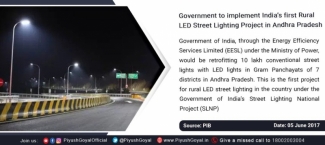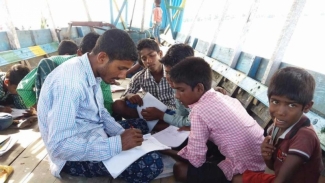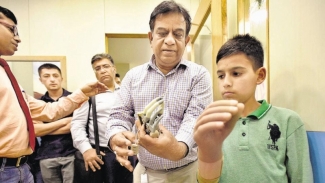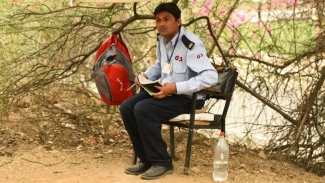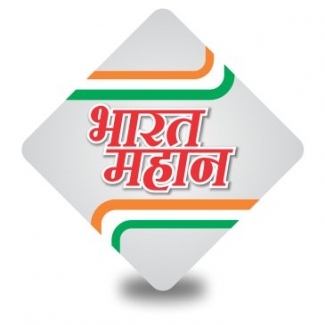
The World Bank has approved Atal Bhujal Yojana (ABHY), a Rs.6000 crore Central Sector Scheme of the Ministry of Water Resources, River Development and Ganga Rejuvenation. The scheme is to be implemented over a period of five years from 2018-19 to 2022-23, with World Bank assistance. The scheme proposal has already been recommended by the Expenditure Finance Committee and the Ministry will be seeking Cabinet approval for the project shortly.
Atal Bhujal Yojana has been formulated by the Ministry to address the criticality of ground water resources in a major part of the country. The scheme aims to improve ground water management in priority areas in the country through community participation. The priority areas identified under the scheme fall in the states of Gujarat, Haryana, Karnataka, Madhya Pradesh, Maharashtra, Rajasthan and Uttar Pradesh. These states represent about 25% of the total number of over-exploited, critical and semi-critical blocks in terms of ground water in India. They also cover two major types of groundwater systems found in India - alluvial and hard rock aquifers- and have varying degrees of institutional readiness and experience in groundwater management.
Funds under the scheme will be provided to the states for strengthening the institutions responsible for ground water governance, as well as for encouraging community involvement for improving ground water management to foster behavioural changes that promote conservation and efficient use of water. The scheme will also facilitate convergence of ongoing Government schemes in the states by incentivizing their focused implementation in identified priority areas. Implementation of the scheme is expected to benefit nearly 8350 Gram Panchayats in 78 districts in these states. Funds under the scheme will be made available to the participating states as Grants.
Ensuring active community participation in groundwater management is among the major objectives of the scheme. The scheme envisages active participation of the communities in various activities such as formation of Water User Associations, monitoring and disseminating ground water data, water budgeting, preparation and implementation of Gram-Panchayat wise water security plans and IEC activities related to sustainable ground water management. Community participation is also expected to facilitate bottom-up groundwater planning process to improve the effectiveness of public financing and align implementation of various government programs on groundwater in the participating states.
The implementation of the scheme is expected to have several positive outcomes like better understanding of the ground water regime, focused and integrated community based approach for addressing issues related to ground water depletion, sustainable ground water management through convergence of on-going and new schemes, adoption of efficient water use practices to reduce ground water use for irrigation and augmentation of ground water resources in targeted areas.






